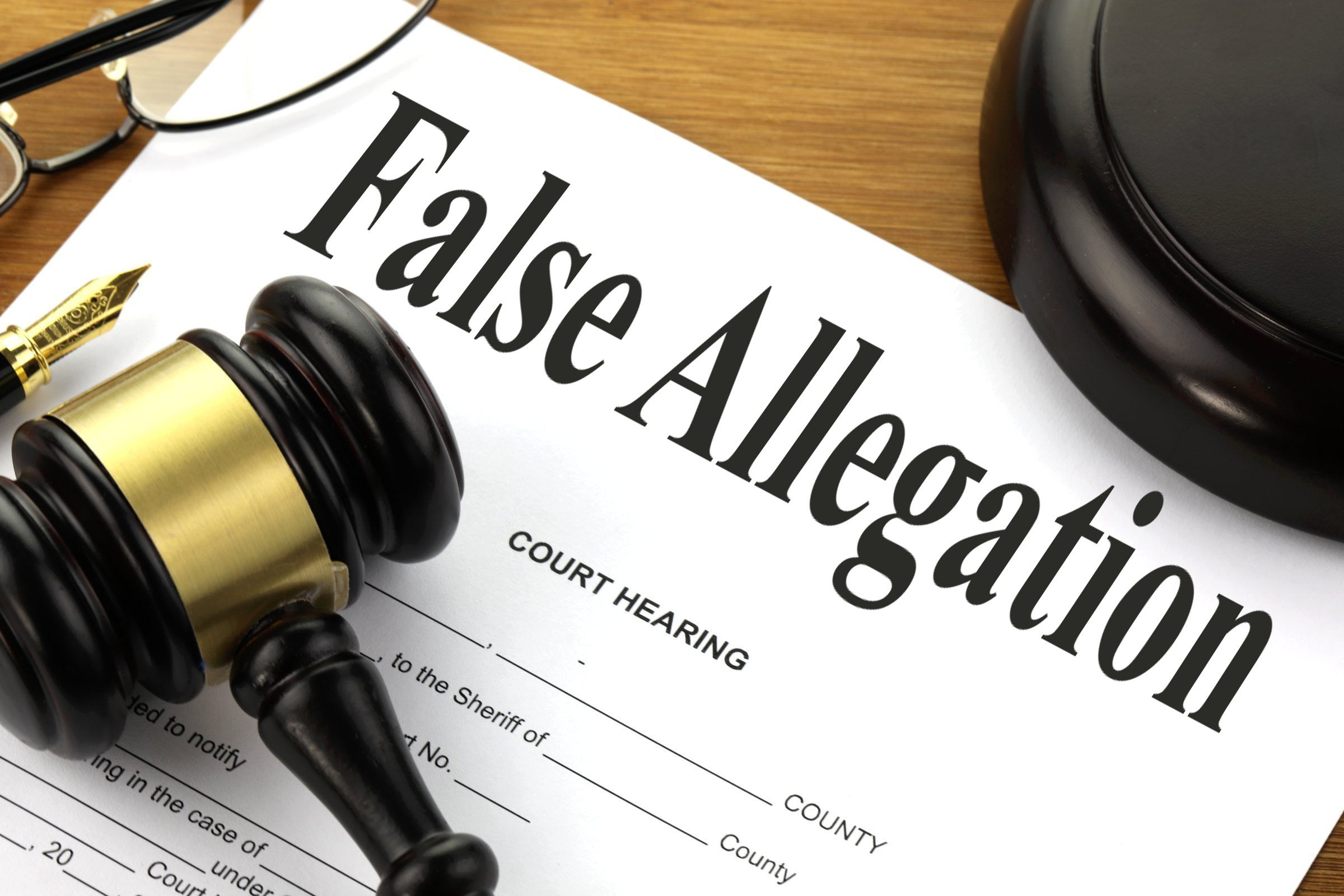
I’ve successfully obtained dismissals, reductions or jury acquittals on a large number of sexual assault cases in my career. These cases are inherently challenging. They require an immense amount of time, work, energy, investigations and pre-trial litigation. Those suspected of false allegations must have situational awareness of the threats, risks and criminal exposure that these false allegations carry. In this blog, I’ll discuss how best to handle false claims of sexual assault so that you can move forward in a positive trajectory without fear or shame.
False accusations of sexual assault are harrowing, traumatic and frightening. They can have long-lasting effects on your life, even if the allegation is found to be untrue. When handling false allegations of sexual assault, it’s important to remain calm and take steps to protect yourself from further harm.
CONTACT A CRIMINAL DEFENSE ATTORNEY
Your first step after being accused of sexual assault should be to contact a criminal defense attorney who is experienced in handling sexual assault cases. A criminal defense lawyer can advise you on protecting your legal interests and help guide you through handling false accusations. This could include reaching out to law enforcement or the prosecutor’s office in an effort to avoid charges being filed.
Defense attorneys can challenge eyewitness accounts by showing inconsistencies. They can also seek to suppress identification evidence gathered improperly. They can advise you on gathering evidence that could prove your innocence, such as medical records or witness statements. In addition, they will be able to explain what legal processes are involved in handling sexual assault allegations, such as how to handle any required court appearances.
In Washington State, numerous defenses exist to fight back against these charges. Some of these defenses are as follows:
- Alibi
- Consent
- Duress
- Entrapment
- Insanity
- Reasonable Defense of Victim’s Age
Undoubtedly, your defense begins with contacting a criminal defense attorney.
DO NOT TALK TO POLICE
Our friends in law enforcement are placed in very difficult positions when investigating sexual assault charges. They did not witness the events take place. However, they are contacted by the alleged victim, medical professionals and/or sexual assault advocates to proactively investigate these serious criminal charges and incarcerate suspects when necessary or possible.
Know this: police are not your friend, ally, mediator or protector in these situations. On the contrary, police are doing their best to gather as much evidence as possible in support of the pending sexual assault charges.
Therefore, sexual assault suspects should not talk to police unless they have their lawyer present. Some suspects think that they can clear their name by cooperating completely with a police investigation. In many cases, however, they end up giving law enforcement valuable evidence that incriminates them. Typically, a suspect’s voluntary statements to police are admissible at trial. These voluntary statements make it extremely difficult to defend against a sexual assault charge once it is filed.
By not talking to police, suspects force police to build their own case. It also eliminates the possibility that the suspect will say something that inadvertently or coincidentally incriminates them.
DO NOT TALK TO OTHER PEOPLE INVOLVED IN THE CASE
Sexual assault suspects should not talk with others who were involved in the incident. This includes the alleged victim and any witnesses. There is very little to be gained by discussing the incident with anyone. Worse, there is a significant risk of saying something that is incriminating. Chances are high that police will interview everyone involved. A poorly-phrased comment can quickly become evidence against the defendant. Additionally, intimidating or tampering with a victim or witness is a crime.
DOCUMENT EVERYTHING
It is essential to keep track of all correspondence related to the case. This includes saving emails, text messages and letters from police officers, lawyers, prosecutors, and witnesses. This documentation can be used later as evidence in your defense if needed. You should also keep track of any legal advice that you receive from your defense attorney. This information can be used to refute false claims or statements.
GATHER EVIDENCE & WITNESSES IN SUPPORT OF YOUR INNOCENCE
If possible, it’s crucial to gather evidence and witnesses who can attest to your innocence. This may include text messages, emails, video evidence, or other documents showing that the incident never occurred or that a witness is not being truthful. You should also speak with anyone who witnessed the alleged incident or who can provide a character reference for you. A criminal defense attorney can greatly assist in collecting this evidence, and so it is best to consult with an attorney before you begin this process.
REACH OUT FOR EMOTIONAL SUPPORT
It is important to seek emotional support during this difficult time. Speak with friends and family about what is going on and ask them for their help. Consider speaking with a therapist or counselor who can provide additional emotional guidance.
False accusations of sexual assault can be challenging to handle, but remember that you are not alone. By following the steps outlined above, you can protect yourself and your legal interests while handling false claims of sexual assault. With the right help and support, you will come out of this experience stronger and more resilient than ever.
Please contact my office if you, a friend or family member are charged with a sex offense. Hiring an effective and competent defense attorney is the first and best step toward justice.






